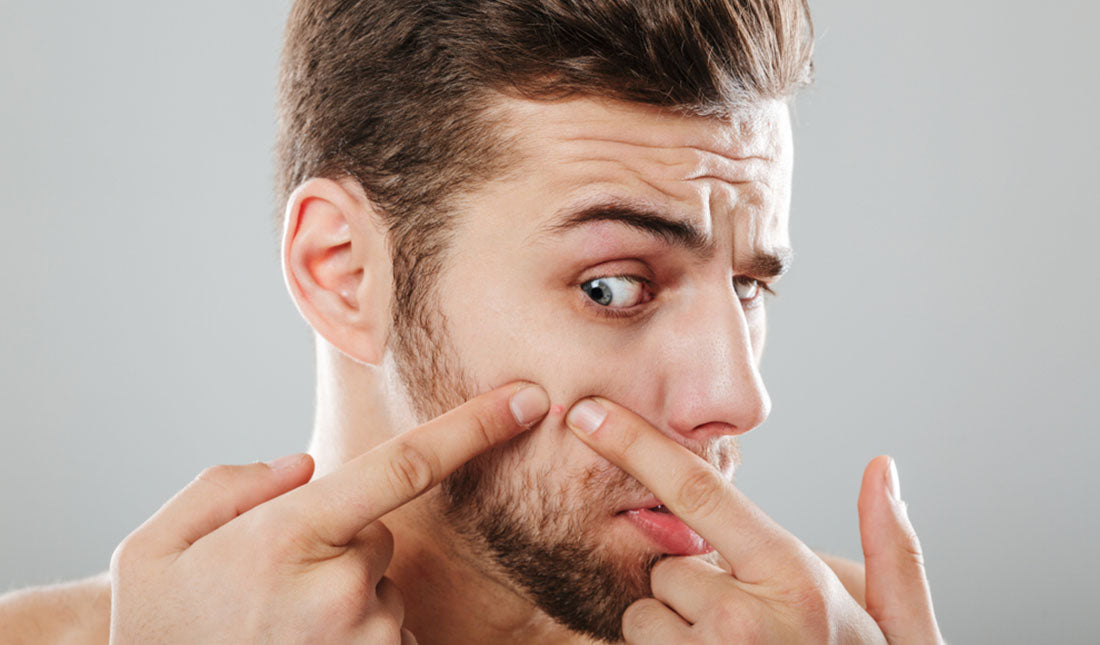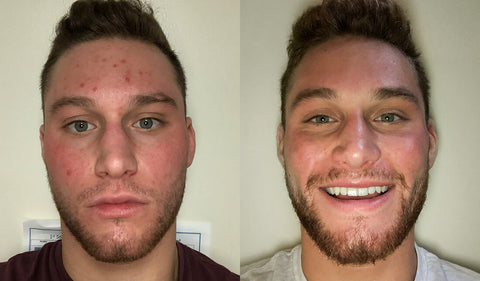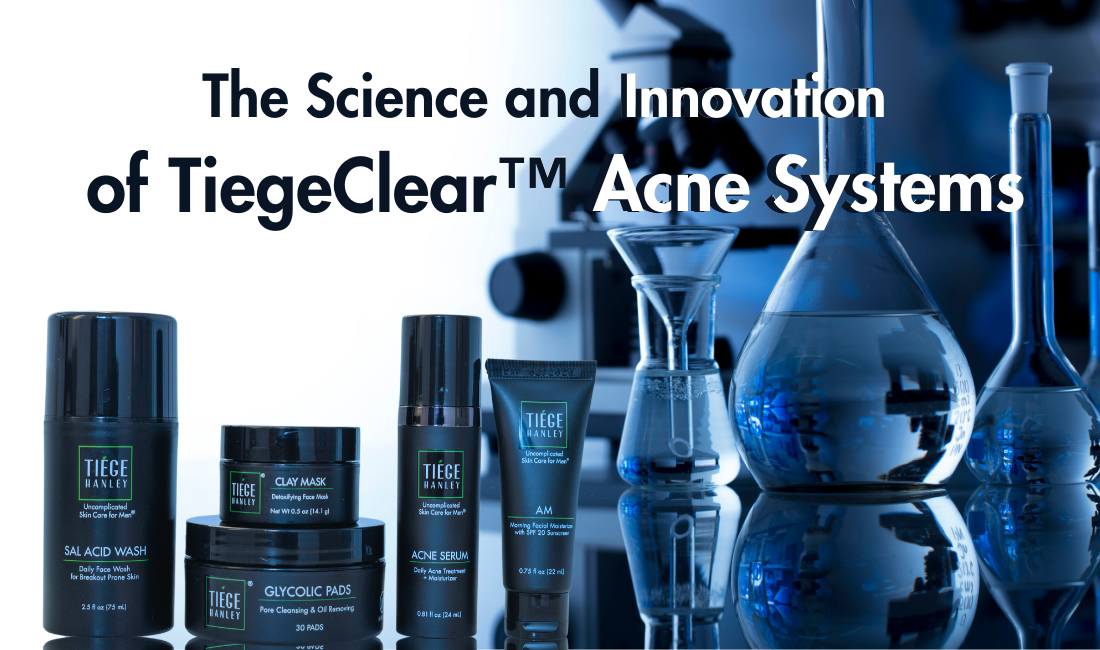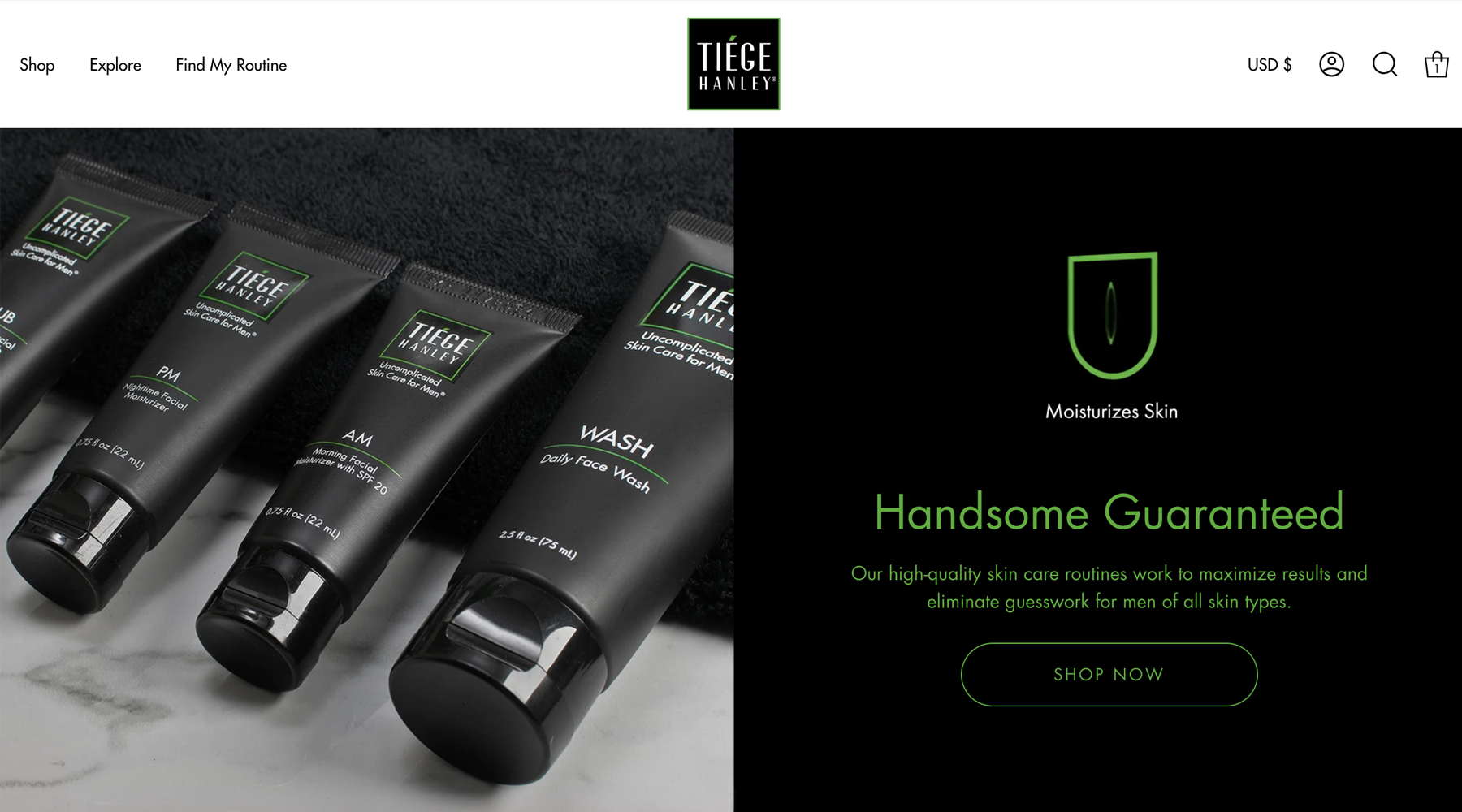Some of us experience seemingly random breakouts. And then, there are some of us who break out in the exact same spot every time, such as the cheeks.
Acne on the cheeks is annoying at best and downright painful at worst. What causes cheek acne? How can you treat it? What are the best ways to prevent acne on the cheeks?
Hold tight, because we’re going to answer all these questions and more.
But first, here are three things you need to know about acne on the cheeks:
- Acne on the cheeks may be caused by dirty cell phones, excessive face touching and hormones
- Salicylic Acid is an effective and affordable way to treat acne on the cheeks
- Getting on a regular skin care routine can keep cheek acne at bay
What Causes Acne on the Cheeks?
You wash your face. You exfoliate. And yet, the acne on your cheek persists. What gives?
If your skin care routine is rock solid, your cheek acne might be caused by the following:
1. Your Mobile PhoneNot to freak you out, but your phone is likely riddled with bacteria. According to 2019 research presented at the American Society of Microbiology, researchers discovered the presence of S. aureus on 40 percent of the cell phones of college students.
- aureus is a Gram-positive bacterium. According to a 2012 study published in the North American Journal of Medical Sciences, there is some in-vitro evidence that S. aureus may contribute to the development of acne (see claim: “There is significant in vitroevidence suggesting a possible pathogenetic role for S. aureusin acne vulgaris.”).
You’re probably holding your bacteria-riddled phone right up to your cheek whenever you answer a call. Fortunately, the fix is simple—wipe down your phone regularly with rubbing alcohol and use speaker phone whenever possible.
2. Excessive Touching of the FaceOn a similar note, your hands are also teeming with bacteria. While most bacteria on human skin is relatively harmless, others can cause diseases such as acne.
When you touch your face, you’re potentially transferring the bacteria from your hands to your skin. You can also spread acne-causing bacteria to other areas of the skin by touching existing pimples on your face.
Bottom line—wash your hands regularly and limit face-touching.
3. Dirty PillowcasesAnother sneaky culprit of cheek acne is your pillowcase. In addition to being covered with bacteria, your pillowcase is also likely covered in your own dead skin cells and sebum (oil).
If you go too long between washes, the oil and dead skin cells from your pillowcase can clog the pores on your skin and cause your face to break out all of a sudden. Luckily, the fix for this problem is simple. Just make sure to swap out your dirty pillowcases for a fresh set every three days or so.
4. HormonesAcne on the cheeks can also be the result of hormones—and no, we aren’t just talking about puberty. Factors such as diet and stress can also trigger your body’s hormonal response, which can make your skin’s oil glands overreact and produce excess oil.
This excess oil can clog your pores and cause acne on the cheeks, making you even more stressed out. Talk about a vicious cycle.
Take the skin care quiz
How to Treat Cheek Acne
If you have pimples on your cheeks, it’s probably safe to say that you want them gone ASAP. Before you start picking at your face (and giving yourself acne scars in the process), here is a far more effective approach to treating acne on the cheeks:
1. Use OTC RemediesAn over-the-counter acne cream is one of the most affordable ways to treat your cheek acne. OTC treatments break down oil and combat acne-causing bacteria to prevent additional breakouts.
We recommend using an acne cream formulated with Salicylic Acid to treat your cheek acne. Salicylic Acid is just as effective as Benzoyl Peroxide while being far gentler on the skin.
2. Reduce InflammationIf your cheek acne is painful and red, you may have a specific type of acne called inflammatory acne. The best way to treat this type of acne is by working to reduce the inflammation.
First, take an ice cube wrapped in a paper towel and apply it to your pimple. Once the swelling is reduced, apply a warm washcloth to draw out the pus (if any). Apply your Salicylic Acid cream to the spot and leave your pimple alone.
3. Use a Prescription-Strength TreatmentIf the first two options aren’t doing the trick, consider seeing a dermatologist. They can prescribe stronger treatments such as antibiotics and prescription retinoids that may provide relief.
Prevention Methods
Preventing cheek acne may be as simple as changing your pillowcase or wiping down your cell phone. If you know exactly what’s causing your cheek acne, the fix can be relatively simple.
However, not everyone is so lucky. Sometimes, acne on the cheeks is the result of genetics. If you have acne-prone skin, then your best bet for preventing cheek acne is to take a multi-pronged approach.
Start with a consistent skin care routine that involves daily cleansing and moisturization. Don’t forget to scrub your face twice a week to remove dead skin cells, which can lead to blocked pores.
To prevent future breakouts on the cheeks, eat a skin-healthy diet with plenty of fruits, vegetables and lean protein. Pair your healthy diet with stress-reducing techniques, such as exercise and meditation.
Wrapping Up
Although acne on the cheeks can be frustrating, the problem can usually be fixed with a few small changes to your daily routine. If your cheek acne is persistent, you might want to take a closer look at your skin care products. Once you get to the root of the problem, you can get rid of your cheek acne for good.
Actual Tiege Hanley customer testimonial:
“Over a 3 year period, I probably spent over two grand in skin care and still had acne. I decided to reach out and request to be a part of the Tiege Hanley Acne trial and I have been blown away. After two weeks, my skin was clear. It’s not the acne cream alone that cleared it up, but how all of the products work together as a whole.” Kyle B., NJ.
GOT ACNE?
References
American Society for Microbiology. "Dissemination of pathogenic bacteria by university student's cell phones." ScienceDaily. ScienceDaily, 21 June 2019.
Khorvash, Farzin, et al. “Staphylococcus Aureus in Acne Pathogenesis: A Case-Control Study.” North American Journal of Medical Sciences, vol. 4, no. 11, Nov. 2012, pp. 573–76. PubMed Central, doi:10.4103/1947-2714.103317.










